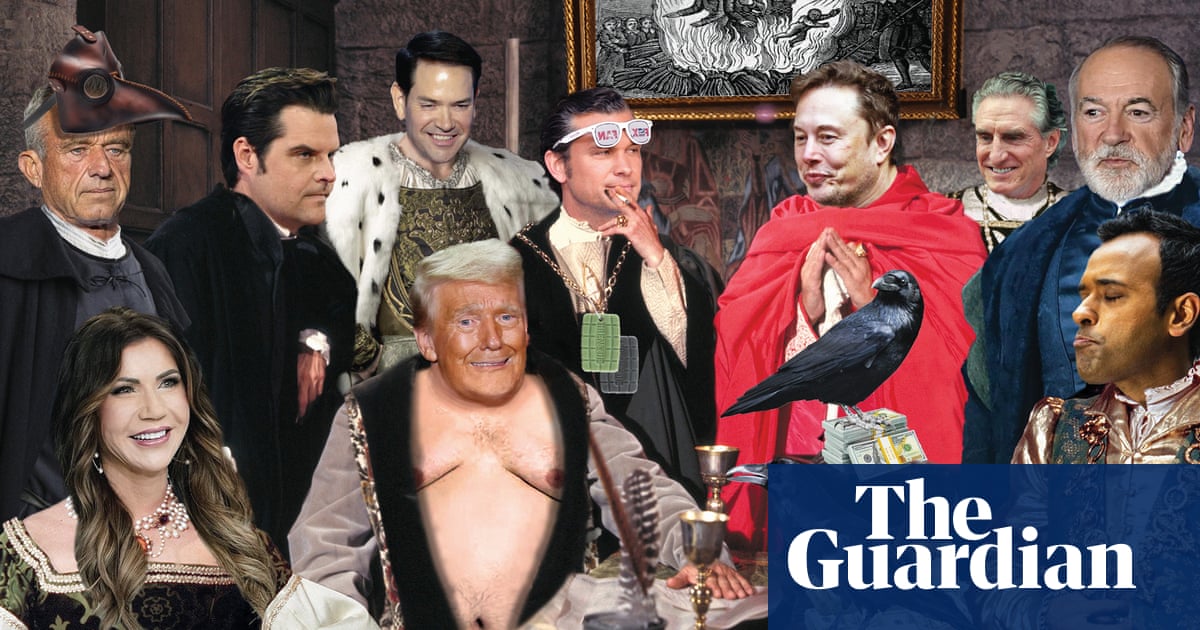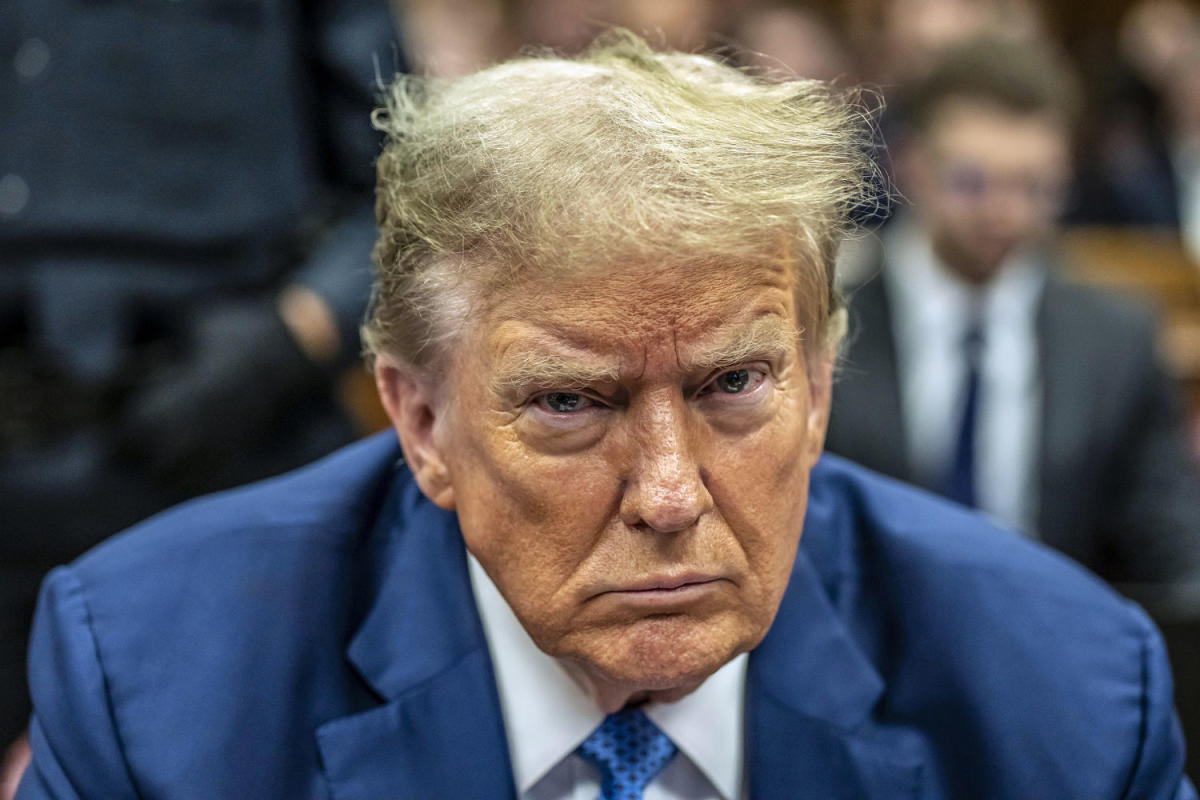Peas from the same pod they sure ain’t. No one is ever going to think that Keir Starmer and Donald Trump are twins who were separated at birth. In their temperaments, their worldviews and the values of the parties they lead, two human beings could not be less alike than the former prosecutor who heads Britain’s first Labour government in 14 years and the convicted felon whom Americans have returned to the White House for another four. When Trumpites are being polite about the Labour leader they call him a “liberal”; when they are feeling vituperative they brand him “far-left”. The animosity has been mutual. There’s a bulging catalogue of damnatory remarks about the president-elect by members of the Starmer cabinet.
Which is why Sir Keir felt compelled to lay on the flattery with a trowel when, according to the account from Number 10, he telephoned the American to extend his “hearty congratulations”. If that left many Labour people gagging on their breakfasts, they retched even harder when the prime minister went on to claim: “We stand shoulder to shoulder in defence of shared values of freedom, democracy and enterprise.” He also employed a well-worn diplomatic cliche that one of our ambassadors to Washington banned his staff from using because he thought it fed delusional thinking about the extent of British influence over the US. “I know the special relationship will continue to prosper on both sides of the Atlantic for years to come,” said the prime minister, even though he can’t be genuinely confident of any such thing. The foundations of transatlantic relations frequently shuddered during the first Trump term. Britain’s defence and foreign policy establishments are seized with a justifiably deep apprehension that the world will become an even more dangerous place during the sequel.
Sir Keir’s effusions have been accompanied by a big effort to persuade everyone that he and his team have been working assiduously to cultivate relations with members of the Trump court, including vice-president-elect JD Vance, with whom David Lammy boasts he’s grown friendly. The foreign secretary wins the gold medal for diplomatic gymnastics. Six years ago, when he was a backbencher, he called the then and now future US president “a woman-hating, neo-Nazi-sympathising sociopath” and “a profound threat to the international order”. Mr Lammy has never recanted those views, but now feels obliged to assert that the British government “will agree and align on much” with the Trump regime. Operation Ingratiate is controversial within Sir Keir’s party and some are already questioning its wisdom. The vast majority of Labour people, sharing the shock and anguish of their cousins in the Democratic party, are more in sympathy with the Trump-denouncing Mr Lammy of yesteryear than they are with the Trump-clasping Mr Lammy of today. Some Labour MPs mutter that Sir Keir is fooling himself if he really thinks he can win the ear of the other man. The concern is that this will be a fruitless pursuit that will earn only embarrassing rebuffs. Theresa May’s slavish attempts to woo the American were rewarded with insults and humiliations – and she was a Conservative prime minister. The better response to his return to the Oval Office, it is argued by some Labour voices, is to start from the assumption that the US will be an extremely unreliable ally and put more urgency into repairing relations with our European neighbours. Other Labour people think the way to react to the US election result is to drop the pretence that there will still be a lot in common between Britain and America. Sadiq Khan, who has history with Mr Trump, has said that Londoners “will be fearful”.
This comeback is distressingly energising for the global hard right. Nigel Farage and other mini-Trump types in the UK are cheering, but they are out of tune with public opinion. The number of British voters who are happy to see the return of King Maga are outnumbered by those who are unhappy by nearly three to one. Tories who think that apeing Trumpism is the way forward should note that a majority of their supporters are among those perturbed by his return.
To those critical or anxious about his offer to partner up, the prime minister has a blunt riposte: we have to deal with the US as it is, not the country we would prefer it to be. Sir Keir’s inner circle acknowledge that they are bracing for a wild ride, but argue that they have to try to do business with a Trump regime, however nightmarishly difficult that will be. Their problem is that this looks like a seismic change in how America turns up in the world and it is hard to see how that can be comfortably fitted into the traditional template of UK-US relations. This holds that, whoever is in the White House and whether or not they are personally agreeable or ideologically sympatico, a British prime minister has to “hug them close”. One way of contemplating the coming four years from a British perspective is as the ultimate stress test of whether there is any remaining value in thinking about Anglo-American relations in that way.
One peril for Sir Keir is that he will be found guilty of wishful thinking when he implies that he can play a role in influencing him for the better once the 45th president becomes the 47th. There are copious reasons to think that Trump Redux will be even harder to constrain than the earlier incarnation. The way he campaigned suggests that his impulses have not mellowed, but sharpened. He is interpreting his victory as “an unprecedented and powerful mandate” to pursue an agenda pregnant with hair-raising risks for the global economy, the western democracies and the architecture of international order. He has won not just in the electoral college, but also the popular vote. The Republicans will control the Senate. It will be a clean sweep if, as seems highly likely, they have a majority in the House of Representatives as well. It will be realistic statecraft to assume that Trump will pursue the nativist, protectionist and unilateralist agenda of “America first” with even more belligerence and even less delicacy towards the opinions and interests of historical allies.
When he arrived in office in 2017, he did so without a clear plan; he had little familiarity with how government worked and seasoned operators in the administration managed to contain some of his darkest instincts. This time, he says he knows what to do with his mandate and will pack his government with true believers faithful only to his bidding. For all the attempts by Downing Street to suggest it has anticipated and prepared for this outcome, ministers privately speak of the cabinet’s stomachs being in knots about the risks to Britain’s safety and prosperity. Of the reasons to be fearful that I outlined a fortnight ago, three cause the gravest concern.
One is the grievous peril to European security posed by his repeated suggestions that he will undo Nato and sell out Ukraine. Another big anxiety is that he will inflict terrible blows on multilateral bodies and agreements, including those addressing the climate crisis. Spines are further shivered by his desire to impose sweeping tariffs on imports into the US. What’s a “beautiful” idea to him will have ugly consequences for us. A global trade war will be hellish for the Starmer government, especially if it is forced to choose sides between the EU and the US. It has never looked more lonely to be Brexit Britain paddling about in the mid-Atlantic as Typhoon Orange masses on the horizon.
From tariffs to defence spending, the best minds the British government can muster are trying to guess which elements of the Trump platform should be treated as deadly serious, which are an opening bargaining position by a man who is hyper-transactional and which were just “campaign talk”. The phlegmatic comfort themselves with the thought that policy bite won’t be as savage as rhetorical bark. The pessimists fear that he means to make good in full on his threats. Ministers privately admit that there will be significant impact on virtually every important aspect of government policy, but none of them can yet be sure exactly how bad the fallout will be.
after newsletter promotion
Hope for the best is not a strategy. Prepare for the worst will be prudent. If Donald Trump does only half the things he has said he will do, Sir Keir will find this a very perilous dance. Trying to hug close to the American is like attempting the tango with a crack-smoking rhinoceros. The prime minister will be lucky if he endures the experience without getting gored.

 German (DE)
German (DE)  English (US)
English (US)  Spanish (ES)
Spanish (ES)  French (FR)
French (FR)  Hindi (IN)
Hindi (IN)  Italian (IT)
Italian (IT)  Russian (RU)
Russian (RU)  1 week ago
1 week ago
























Comments